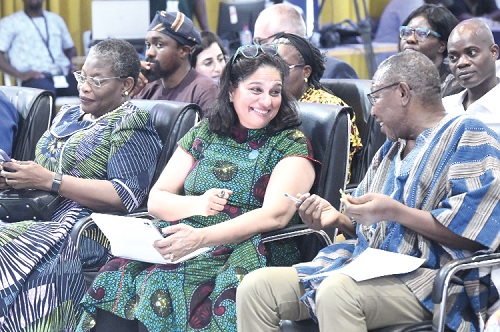The Ministry of Education, in collaboration with the United Nations Children’s Fund (UNICEF), has launched a digital monitoring tool to enhance the country’s efforts to ensure that every child acquires the foundational skills essential for lifelong learning and success.
The tool, known as the Foundational Learning Action Tracker (FLAT), provides crucial insights to accelerate progress in literacy, numeracy and socio-emotional skills among children across the country, supporting Ghana’s pursuit of its national education targets and the Sustainable Development Goals (SDGs).
The tracker also offers evidence-based data to guide policy refinement, promote equitable resource allocation and strengthen interventions aimed at improving learning outcomes.
FLAT monitors national progress using the RAPID Framework, which focuses on five key areas — reaching every child and keeping them in school, assessing learning levels, prioritising the teaching of fundamentals, increasing instructional efficiency, and promoting psychosocial health and well-being.
Major step forward
Speaking at the launch in Accra yesterday (October 27), the Deputy Minister of Education, Dr Clement Abas Apaak, described the initiative as a major step forward in the country’s educational transformation.
He emphasised that foundational learning — encompassing literacy, numeracy, and socio-emotional skills — was critical to children’s holistic growth and active participation in society.
“Currently, 70 per cent of children in low- and middle-income countries struggle with basic reading by the age of 10. This is a pressing challenge for us in Ghana as well.
“That is why we have prioritised foundational learning through curriculum reforms, teacher training, and digital learning initiatives,” Dr Apaak said.
He underscored the central role of teachers in achieving improved learning outcomes, calling for increased investment in teacher education and professional development through projects such as the Ghana Accountability for Learning Outcomes Project (GALOP) and the National Teacher Professional Development Framework.
He further revealed that the ministry was exploring the use of innovation and artificial intelligence (AI) to enhance teaching and learning outcomes, while ensuring that technology solutions are adapted to local contexts.
“FLAT is more than a monitoring tool; it is a platform for shared accountability and collective learning.
Let us commit to using data to drive meaningful reforms, invest in teachers, and create classrooms where every child can thrive,” he said.
The Global Director for Education and Adolescent Development at UNICEF, Dr Pia Rebello Britto, commended Ghana for its leadership and alignment with global learning goals.
She noted that while many countries had made progress, a global learning crisis persisted, with millions of children still unable to read or perform basic arithmetic.
“We are seeing entire generations being held back. But today is a day of opportunity.
We have the tools, the data, and the leadership to turn global commitments into measurable classroom action,” Dr Britto said.
She explained that the FLAT, first launched globally in 2023, had been collecting data from 124 low- and middle-income countries to measure progress across the RAPID Framework’s five dimensions.
Dr Britto highlighted encouraging findings from the 2025 Report, including increased tracking of student attendance, integration of social-emotional learning, and improvements in structured pedagogy.
However, she also pointed out persistent gaps, noting that fewer than half of the countries had implemented support systems such as cash transfers for disadvantaged students or used assessment data to improve classroom practices.

